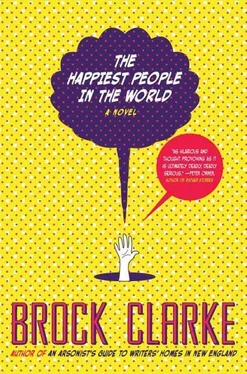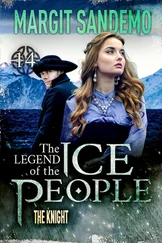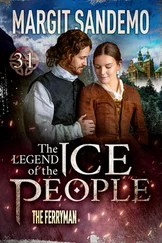Capo was in Doc’s, sitting at a table, surrounded by his students. “Have I ever told you,” he asked them, “about my turn as Don Pedro in that very interesting production of Much Ado in Sarajevo?” The students shook their heads to indicate that he had not. In attendance were four boys who looked like younger versions of Mr. Klock in their knit ties and corduroy blazers and trimmed blond beards and who had been regular participants in Mr. Klock’s after-school club for some time now. “I was there, of course, because of the so-called Butcher of the Balkans. He was playing Don John to my Don Pedro. And do you know that the Butcher said something very interesting to me.” Capo paused, as though trying to remember the Butcher’s exact words. “The Butcher said, ‘I pretend to be Don John. But you, you are Don Pedro. You do not pretend.’ ” Capo paused to let his students consider the point. “My point is this: when you are in our funny little business, you must not ‘act,’ even when you are ‘acting.’ ”
The students nodded. They sipped their coffee, legs crossed, trying not to seem awed by the Butcher or the Bard or Sarajevo or the funny little business or anything. They were following Capo’s suggestion: they were being adults by acting like adults. Meanwhile, Capo had grown thoughtful. Doc and Crystal were watching him from behind the counter. Crystal whispered to Doc, “He’s talked about acting; now he’ll talk about the Mass Grave.” “Sadly,” Capo said, “the Butcher was right about his performance, which was lacking. Perhaps he would still be alive if he’d dedicated himself a bit more to the Stage, and a bit less to the Mass Grave.”
The door opened, its bell tingling; everyone turned in that direction and watched Jenny enter. The students asked Capo, with their alarmed looks, What’s she doing here? He ignored them. “Jennifer, you’re late,” he said, and Jenny stood in the doorway, nervously fingering her neck stud. He beckoned with his hand and she walked toward him. When she was close enough, Jenny leaned over, placed something in Capo’s hand, and then whispered several things in Capo’s ear. “But sometimes tardiness is unavoidable,” he said when she’d finished whispering. “You’ve more than redeemed yourself, Jennifer.” He gestured toward an empty seat and Jenny took it. Then Capo turned and said in the direction of Doc and Crystal: “Quickly, quickly, find”—and here he glanced at the boy students, then back at Doc and Crystal—“ London .”
“What about his car?” Crystal said. Because this was the procedure: when you do not want someone to flee, you first take away his preferred method of flight. But Capo shook his head, held up several greasy plugs with wires growing out of them. “Perhaps I erred after all,” he said to the boys, “in forbidding you to take Automotive Shop. It seems that Jennifer, at least, has learned something useful there.” He swung the plugs in lazy circles as he thought about Joseph, not Joseph now but Joseph ten years earlier, when he was just sixteen years old, and like all sixteen-year-olds was wondering, wondering, wondering what kind of adult he wanted to be, listening to Capo’s stories, thinking this was the kind of adult he wanted to be. It turned out that this was the worst kind of adult for him to want to be. And now, Capo thought, he would never have the chance to be another kind. But that was an imprecise thought. Capo would never let him have the chance to be another kind. That was a more accurate thought, although of course Capo did not like to think it.
“Please just find him,” Capo said. But Doc and Crystal were already at the door. They looked out it, and Crystal said, “Found him.” Capo stood up and then walked over to the window. Through it he saw the bus pulling away from the square, and Joseph running after it, waving his hands and shouting wildly in the “why is this happening to me?” manner of people who have just missed their bus. Then Joseph stopped running, looked in the direction of Doc’s, and saw the three of them looking at him. Then he started running in the other direction, back toward them at first, and then he cut into the alley between the post office and the Lumber Lodge. But before disappearing into the alley, Joseph had passed Ronald, who was holding an automatic weapon and walking with great purpose toward and then into the Lumber Lodge. Capo had been waiting, waiting for Locs to arrive in Broomeville; in fact, he’d pictured her holding a gun, walking with great purpose toward the Lumber Lodge. But once Capo saw Ronald, he forgot all about Locs, the lesson being that the person you see with a gun trumps the expectation of the person you might see with a gun.
“Children,” Capo said to the students. “Go home.”
“But we are home,” one of the boy students said. Capo, of course, had taught them to talk like that, to think like that. But sometimes it really broke his heart to see how fully they’d learned their lesson. Even Jenny, whom he hadn’t really even begun to teach, was looking at him in a pathetic way, fingers furiously messing around with her piercing. “Jennifer,” he said, his meaning clear enough. Jenny moved her hand away from her neck and put both hands in her jeans pockets as a failsafe. “Go to your other homes,” he said to the students. “I will see you all at school tomorrow.” The students did what their Capo told them to. Then he turned back to Crystal and Doc. He could tell what they were thinking: they were thinking that they were going to have to shoot a lot of people. But that was not the way Capo liked to think. He told Doc to get Joseph. “He ran down a dead-end alley,” he said. Capo, thinking, thinking. He asked Doc if he had his badge, his cuffs. Doc patted his jacket pocket to indicate that he did. Not many people knew that Broomeville County even had a coroner, let alone that Doc was that coroner, let alone that that’s why Doc was called Doc, let alone that Doc, as the coroner, was automatically deputized, which meant that he had a badge and cuffs and had the right to arrest people.
“Bring poor Joseph in cuffs into the Lumber Lodge,” he said to Doc. Doc nodded, ran out the door. “Come,” Capo said to Crystal.
“You know we’re going to have to shoot a lot of people,” she said.
“That’s not the way I like to think,” Capo said. But she was already running toward the Lumber Lodge.
They had not taken the bus, because Locs hated taking the bus, and so she lied to Mr. Korkmaz about there not being a bus to Broomeville. Instead they rented a car. Who knew what kind it was. Locs wasn’t paying attention to that. She drove, following the snaking highways and bridges through New York City, then up the Hudson to Albany, then west, along the canal as far as Utica, then north. She registered the changes in scenery without really paying any attention to them. The entire way she was thinking nothing but, Matthew, Matthew, love, love, until thirty minutes from her destination, when she remembered to think: Broomeville. Five minutes later they came to the house of the guy who was well known for selling illegal fireworks and much less well known for selling illegal firearms. But Locs knew: two years earlier, on the run from Broomeville to Denmark, she’d sold her many guns to the guy for traveling money. Now she was back. “You’re back,” the guy said. Everyone called him Buddy, but Locs refused to call him by that name or to refer to him, even in her head, as anything but “the guy.” Locs was hoping the guy would sell her something high caliber. But all he had were handguns. With Mr. Korkmaz’s money, Locs bought two handguns.
“Who’s the fucking old man?” the guy said, easily loud enough for Mr. Korkmaz to hear. The guy himself was probably forty, but he had an enormous white beard, big enough to hide things in, and dressed in denim overalls and dusty brogans and a faded floppy hat, as though at any second he expected to be whisked back to the Dust Bowl, and in all respects he looked like an old man himself, which presumably, in his mind, gave him the right to refer to actual old men as fucking old men, rather than with the respect they deserved. Locs didn’t know why she was getting so worked up about this. Maybe because she was preparing to get worked up about other things. Quickly she loaded the gun and handed it to Mr. Korkmaz. “Go ahead and shoot him,” she said.
Читать дальше












